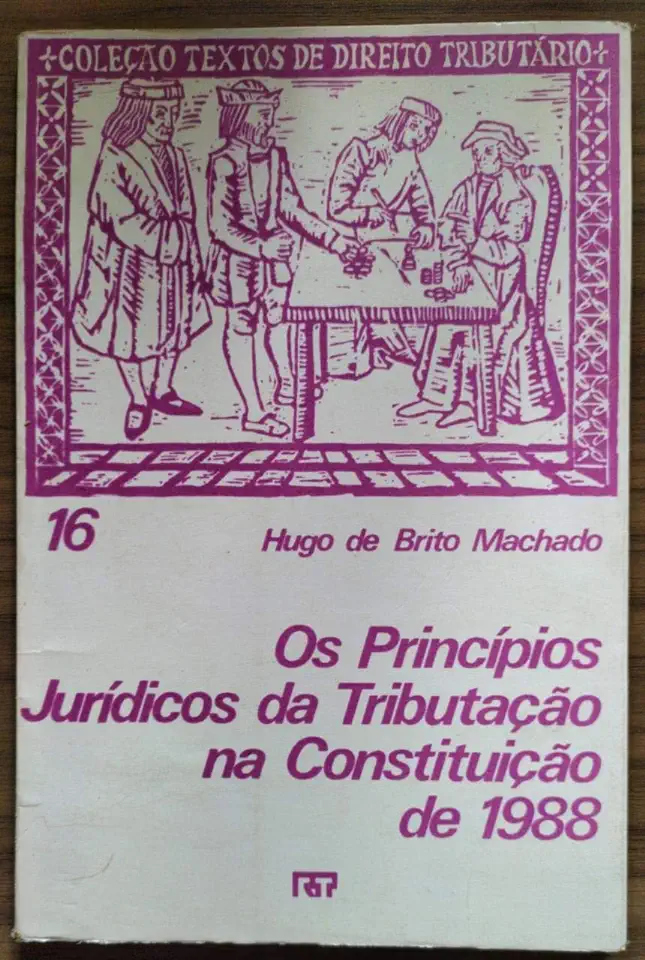
The Legal Principles of Taxation in the 1988 Constitution - Hugo de Brito Machado
The Legal Principles of Taxation in the 1988 Constitution - Hugo de Brito Machado
Introduction
In this comprehensive and insightful book, Hugo de Brito Machado delves into the intricate legal principles of taxation enshrined in the 1988 Brazilian Constitution. With a keen eye for detail and a profound understanding of the subject matter, Machado provides a thorough analysis of the constitutional framework governing taxation in Brazil, offering valuable insights for legal practitioners, policymakers, and anyone interested in the intricacies of tax law.
Constitutional Foundations of Taxation
Machado begins by establishing the constitutional foundations of taxation, exploring the fundamental principles that underpin the Brazilian tax system. He examines the constitutional provisions that define the scope and limits of the taxing power, including the principles of legality, equality, and proportionality. Machado also discusses the constitutional safeguards against excessive or arbitrary taxation, highlighting the importance of protecting taxpayers' rights and ensuring a fair and equitable tax system.
Taxing Power and its Limitations
The book delves into the intricacies of the taxing power, analyzing the various forms of taxation recognized by the Brazilian Constitution. Machado examines the different types of taxes, including income tax, corporate tax, property tax, and value-added tax, explaining their respective characteristics and limitations. He also explores the constitutional limits on the taxing power, such as the prohibition of confiscatory taxation and the requirement for a clear legal basis for any tax imposition.
Taxpayer's Rights and Guarantees
Machado dedicates a significant portion of the book to the discussion of taxpayers' rights and guarantees under the 1988 Constitution. He examines the constitutional provisions that protect taxpayers from arbitrary or abusive tax practices, including the right to due process, the right to challenge tax assessments, and the right to seek judicial review of tax decisions. Machado also analyzes the constitutional limitations on tax enforcement, emphasizing the importance of respecting taxpayers' privacy and property rights.
Taxation and Economic Development
The book explores the relationship between taxation and economic development, highlighting the role of taxation in promoting economic growth and social justice. Machado examines the constitutional provisions that guide tax policy in Brazil, such as the principle of tax progressivity and the promotion of regional development. He also discusses the challenges of balancing the need for revenue generation with the potential negative effects of taxation on economic activity and investment.
Taxation and Social Justice
Machado concludes the book by examining the role of taxation in promoting social justice and reducing income inequality. He analyzes the constitutional provisions that mandate the use of tax revenues for social programs and public services, such as education, healthcare, and social assistance. Machado also explores the potential of tax policy to address social disparities and create a more equitable society.
Conclusion
"The Legal Principles of Taxation in the 1988 Constitution" by Hugo de Brito Machado is a must-read for anyone seeking a comprehensive understanding of the legal framework governing taxation in Brazil. With its in-depth analysis of constitutional principles, taxation power, taxpayers' rights, and the relationship between taxation and economic development and social justice, this book provides invaluable insights for legal professionals, policymakers, and anyone interested in the intricacies of tax law.
Enjoyed the summary? Discover all the details and take your reading to the next level — [click here to view the book on Amazon!]